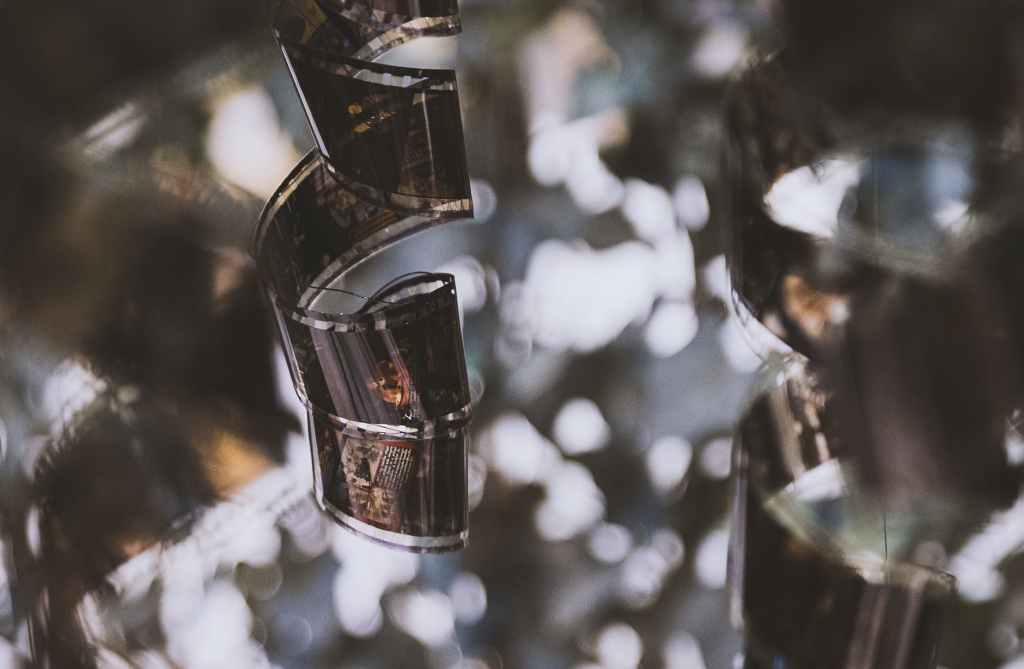
Photo by David Bartus on Pexels.com

Photo by John-Mark Smith on Pexels.com
Before watching the movies, Gattaca and Pump up the Volume, from the titles alone, I assumed Gattaca was going to be some sci-fi movie, possibly taking place in space. I mean- I don’t know, what else does Gattaca sound like it could be about? It’s almost like a given. As for Pump Up the Volume, I assumed it was going to be some 90s film, and that’s literally all I assumed for it. For some reason, the first thing I thought of after reading the title, was the song “Pump up the Jam” by Technotronic, and since it was correlated in my mind, I also correlated the timeframes for both individual mediums.
Both these movies do actually remind me of other work. In the case of Gattaca, this movie literally reminds me of Disney’s Mulan. Why? Well, in Gattaca, Vincent (he is played by Ethan Hawke in the film), who is born an “invalid”, automatically deemed physically inadequate, and disallowed from working in certain fields because of his “invalid” status, as opposed to the “valids”, who can get any job they want, even by a mere urine test. In Mulan, Mulan is a woman who is also deemed physically inadequate and disallowed from entering a field (military) on behalf of her father, because she is a woman. Similarly, both Vincent and Mulan decide that in order to achieve their goal (for Vincent it’s going to space, and for Mulan is keeping her father from entering the war, as he is already very weak and old), they will have to assume the identity of the “standard model”, meaning transforming themselves into the very types of people who will easily be able to achieve their goals because of societal factors.
In Gattaca, it’s the discrimination of “invalids” that influence societal factors and in Mulan, it’s the patriarchal model, which keep women docile and submissive, that shape society. More similarities between the movies do exist, both Mulan and Vincent are completely committed to their cause, they both nearly get caught at times, then they both actually get caught by their love interest (Shang in Mulan and Irene – played by Uma Thurman- in Gattaca). Regardless, in the end, both achieve their overall intended goal. Moreover, both of these movies express a clear theme of identity assuming as means to success.
Pump Up the Volume reminds me of both Spider-man and Hannah Montana, for very obvious reasons. Mark aka Happy Harry Hardon (played by Christian Slater), Peter Parker, and Miley Stewart are all students who have a double-identity, with both identities being stark opposites of each other. For Mark, as “Happy Harry Hardon” he is a no-filter, rebellious teen who gets real about a lot of issues and daily ongoings, and at school, Mark is mostly quiet, meek, and timid. In Hannah Montana, Miley Stewart as Hannah is popular and glamourous, as regular Miley Stewart, she is basically a “loser” and very unpopular. In Spiderman, Peter Parker is strong and heroic as Spider-man, however as Peter Parker, he is geeky and particularly shy. In a way, they are all imitating a better version of themselves while they are shielded by their disguises. Mark’s disguise is his radio show, which allows him to be faceless; Hannah’s disguise is her wig; and Spiderman’s disguise is his costume; nonetheless, in these mediums, there are people constantly trying to expose them for their real identity.
My favorite moment in Gattaca is when the real Jerome (played by Jude Law) is forced to climb the stairs after getting a call from Vincent that the authorities were on their way. Jerome immediately throws his body onto the stairs and climbs up using his arm strength, because he has to be upstairs in order to buzz them in, and most of all, he has to pretend to be sick. Jerome manages to pull it off, however, it is in this scene that Irene discovers the Jerome she thought she knew, isn’t really Jerome. The lengths everyone goes through in order to continue the facade is astounding,
My favorite moment in Pump Up the Volume is when Mark goes on his rant about suicide, using reverse psychology to put off his listeners from the idea of suicide as a last resort. This is particularly important to him, as one of his listeners recently killed themselves after speaking to Mark on air and he feels partially responsible for his death. Mark (as Harry) tells his listeners that rather than killing themselves or being silent about their problems, they should “do something crazy” as a way to attract attention to their personal turmoil and get their parents attention regarding the issue. I thought it was pretty interesting how Mark was using radio (a medium) to encourage acts of craziness, which he finds to be a much better alternative, to a worst act, suicide. Moreover, some of the kids were actually effected by his words and proceeded to actually do crazy things.
In Gattaca, the theme felt kind of like they were alluding to racism or sexism by usage of the the “invalids”, which was ironic because in the film, racism and sexism do not exist. Discrimination only exists for “invalids”, who are considered to be imperfect humans born out of chance, rather than genetically engineered to perfection. Ironically, there weren’t many people of color or women working as “valids” in the movie, as most of them were white, tall men. Overall, the “invalids” themselves, seem to represent any group who has been told they were inferior from birth, like that of women or non-Anglo/Euro races throughout history.”
For Pump Up the Volume, the theme, at least from my perception, has to do with suppression and rebellion in suburban, white, middle class neighborhoods. Mark as “Happy Harry Hardon”, talks a lot about the failures of the 60s and of his parents “selling out”, This suppression of vulgarity and justice looms over the teenagers and contributes to their miserable, chaotic lives. Mark uses media (his radio show) as a way to release the very feelings he suppresses daily throughout the film.
I thoroughly enjoyed both of these films, they were both very interesting. I liked Gattaca because watching it kind of felt like watching a Black Mirror episode. Gattaca provided me with all the suspense I could ever want from a film, and of course, there were plenty of amazing actors in this movie. This movie could have been made yesterday, that’s how great it is!
I absolutely adored Pump Up the Volume, mainly because I love how Mark’s character spoke and what he spoke about. He was very realistic and aware of his parents (and pretty much of all parents and forms of authority) and the role they play in trying to make everything seem like it’s okay on the outside, even though it’s actually pretty destructive. He also used a radio to do it, which kind of dates the film, but it also showcases the power of media.
In Gattaca, my favorite character was the real Jerome Morrow. Jerome’s character is a “valid” who had an accident and is now wheel-chair bound, it is this character who Vincent imitates daily as he works in Gattaca, climbing the ranks till he fulfills his goal of going to space. Even though the real Jerome is a “valid”, he is paralyzed and is no longer viewed to be “valid” by society. I like Jerome’s character because he felt more realistic as opposed to Vincent’s character who I felt was always trying to reach perfection.
In Pump of the Volume, my favorite character is easily Mark. Even though Mark is quieter in his average life, once he begins speaking as “Happy Harry Hardon”, he literally transforms into a different person. His imitation of a livelier, more communicable persona instantly makes him worthy as being my favorite character.
Overall, I find these two movies (Gattaca and Pump Up the Volume) to be pretty similar, both of these movies share a common theme of “assuming identities” and “imitating someone else”. In Gattaca, Vincent assumes the identity of a “valid” and imitates him daily. In Pump Up the Volume, Mark assumes the identity of an alter-ego (in which he dubbed “Happy Harry Hardon”), who isn’t afraid to say what he wants and speak his mind confidently, using books to help him more perfectly imitate the persona he is trying to convey.
A particular difference from these movies is that in Pump Up the Volume, Mark personal identity is concealed; whereas in Gattaca, Vincent works hard to publicly maintain his assumed identity, having to abide to various identifying technologies that produce reports in seconds. The only tell that Vincent isn’t Jerome (besides DNA evidence of course) is in their photographs. Both Vincent and Jerome highly favor one another, ironically to the point where no one seems to question whether they see the same Caucasian male on Jerome’s ID or not.
In his book, Mass Media in a Changing World, George Rodman, explains how since movies induce a dream-like state among its viewers (darkened theaters contribute to this), the movies tend to have a ‘powerful effect’ on the viewers, causing viewers to transform their realities and be emotionally responsive to what they see on screen, and often leading to imitation. I think that can possibly be suggested for both of these movies, since they did conjure invested reactions from myself while I was watching them, however, I can’t say I would actually imitate anything I watched on these films. Rodman calls this the “third person effect” which is the theory that media will affect other people more than oneself. In this case, I believe other people could possibly be susceptible to imitating what they’ve witnessed, but personally, I wouldn’t. In the movie Pump Up the Volume, the actual characters exhibit desensitization by receiving violent messages/music through use of the radio. Rodman explains desensitization as being “a process by which viewers of media violence develop callousness or emotional neutrality in the face of a real-life act of violence” (Rodman 38). I believed desensitization and the powerful-effects model was exhibited in the actual movie, especially after the suicide death that occurred. Most of the characters seemed to revel in taboo, death, sex, and other vulgar subjects, this leads me to believe the characters themselves are supposed to represent suppressed, desensitized individuals. Even more so, all of the teenagers in the movie are really responsive to Mark’s radio show, indicating a powerful-effects model in the works. Perhaps this means the movies are imitating reality, instead of being imitated by reality.
Overall, I loved both of these movies because I thought they were well written, had great actors, and they both were super satisfying to watch. I think these movies could be released today and yield tremendous, positive, audience reactions. These movies aren’t just films that could be possibly imitated in life under a powerful effects model, instead, these are films that mostly feel like they may be already imitating our actual lives.
One thought on “Imitating or Imitated?”